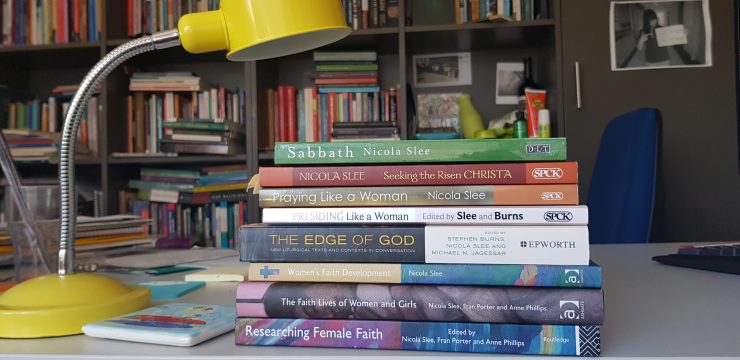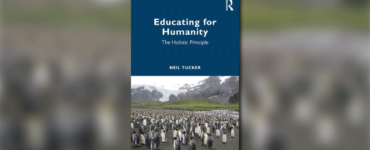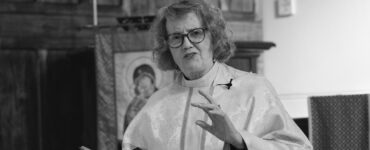by Michelle Eastwood
Recently I had the opportunity to review reference lists for subjects offered at my college. For each list I counted the number of texts authored by women. I have been counting women and other minorities for some time so that I have evidence of the gender imbalance which is so often present in academic theological settings. While most subjects included a book authored by an individual woman, there were still some reference lists that were populated solely by white males.
This is a problem for a number of reasons. Firstly, we know that while the concept of merit has traditionally been the preserve of white males, there is increasing evidence that a diversity of perspectives improves performance. Listening to perspectives other than our own challenges us to consider new viewpoints and ideas. They may also help us to consider our opinions and check our biases that are invisible to like-minded peers.
Minorities often also have to work harder to get the same amount of credit than men. This means that they are conditioned to present more factual evidence and be required to develop their ideas to a higher standard just to be taken seriously. Anecdotally, it is frustrating to many women seeing their ideas ignored until it is voiced by a man. Empirically, these biases have been proven to be held by most members of a community, even those who are potentially harmed: Black, Indigenous, People of Colour (BIPOC). In terms of gender bias, this is called internalised misogyny. Similarly, BIPOC may have internalised racism; older people may have internalised ageism and the like.
The second major issue in theological settings is for people undertaking theological study. We know that representation matters. When people see individuals like themselves writing the texts, engaging in the debates, and being taken seriously in religious discourse, it encourages them to believe in themselves. It also presents the possibility that their theological understanding matters in academia and also within the wider church. This is particularly important in Christian traditions that limit the role of women to wives and mothers. Research has demonstrated a link between patriarchal understandings such as this and gendered violence and abuse.
For ministry candidates, being able to hear the experiences of a diverse student group will hopefully enable them to minister more effectively to the diversity of people within their faith community. It hopefully will remind them to be humble in their understanding and interpretation. It may also alert them to the way the text can be abused to marginalise and manipulate the vulnerable.
Often, it is only when presented with the evidence of imbalance that implicit biases become apparent. Therefore, when you are writing your next booklist check that a diverse range of voices is included. This means thinking about gender, race, culture and other identity markers. It doesn’t automatically mean more women. If you are teaching a traditionally feminine subject, it might mean checking that there is a balance of male voices. It is also important to note if the only women included are co-authors, or if they have written texts in their own right.
A common complaint is ‘that there are no women writing in this field.’ In 2019 this is unlikely to be true, although it may take extra time to find their contributions. Taking the time to find and include women, BIPOC, queer theologians and other marginalised writers is one way to show that you genuinely value diversity, and are not willing to settle for lip-service to variety. The more that diverse voices are sought, the more they will be given an opportunity to publish. Your effort will be improving things for women to come.
There are lists that make this task a little easier. Some places to start looking are:
- There are no women on my theology bookshelf – Maggie Dawn
https://maggidawn.net/2015/08/11/there-are-no-women-on-my-theology-bookshelf-2/?fbclid=IwAR2wEG5hTzsDz2Srwsa_fJQ7SEanXIttftKaIOazgRnvHlZWEMbZTSnNWEc - 18 Asian female theologians – The Global Church Project
https://theglobalchurchproject.com/18-asian-female-theologians/ - Women Scholars of 19-21st Century – Logia Resource Database
https://logos.wp.st-andrews.ac.uk/logia-resource-database/?fbclid=IwAR0hZu5qF1Be0RDKb9JdX0Fyvh0jAOFJKE0J8zj7NuFTCQe4wz8ZJrQg1HU - The Top One Hundred Books on the Bible and Social Justice
- https://radicaldiscipleship.net/top-100-books/
- Feminist Theology 101 – Water Women’s Alliance
https://www.waterwomensalliance.org/feminist-theology-101/#toggle-id-19-closed - University of Divinity Feminist Theologies LibGuide (development in progress)
https://divinity.libguides.com/feminist
Remember, diversity is good for us all.

A leading voice for feminist theological scholarship and a hospitable hub for engagement with feminist approaches within Australia and the region.
The Australian Collaborators in Feminist Theologies network aims to consolidate and energise the University’s commitment to the participation of women and feminist scholars in the academy and the wider church. By fostering and forwarding feminist voice and vision we aim to promote Gospel justice by addressing issues relating to gender equality, class, race, sexuality, and ability.







Yes. And the situation for subalterns (those of us who are invisible to whiteness as a fundamental paradigm for imagining the world) is even worse. While I have been taught by women and queer people, I have never (in Melb) been taught by an Indigenous person. While this remains the state the state of affairs, Aboriginal and other Indigenous people are fundamentally dissuaded from studying theology at all.